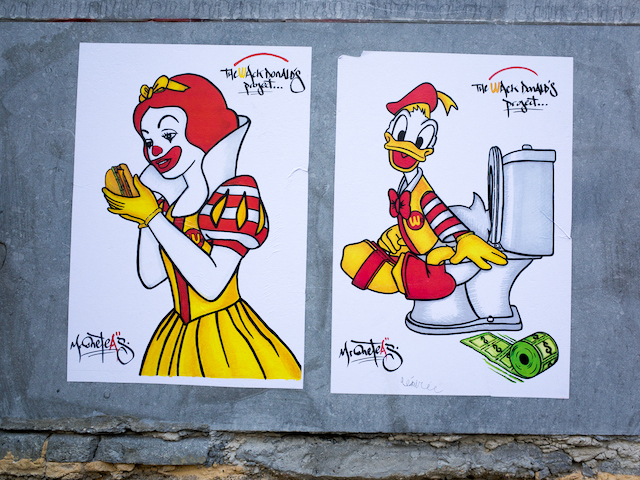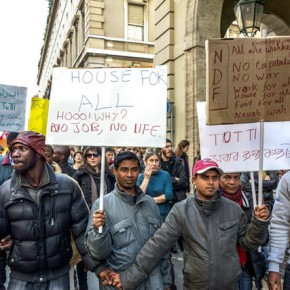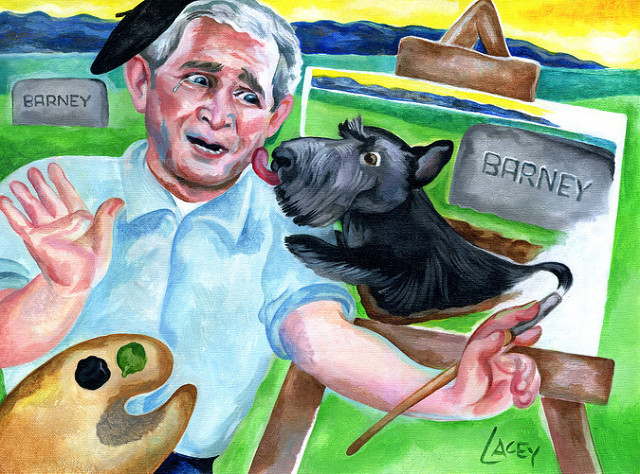There are reasons for Europeans to feel antipathy towards the United States, just as there were in previous decades. But expressing these sentiments is not as easy as it used to be. The bait-and-switch move that reliably substituted cultural targets for political ones is becoming harder to pull off. As social media make the world smaller, they complicate the facile generalizations that were once de rigeur.
To be sure, the majority of Americans are perilously ill-informed about global politics. A great many of them not only lack cultural literacy, but proudly showcase their ignorance as a badge of honor. A trip to any major supermarket in the States will attest to the absurdity of the foods that consumers are expected to procure.
At the same time, though, it has never been more clear that these staples of anti-Americanism only tell a partial story. It’s not simply that wealthy people from the States buy their way into an illusion of legitimacy, as they did in the decades leading up the Great War. Plenty of Americans who fall into what sociologist Pierre Bourdieu called the “dominated fraction of the dominant class” strive to do so without being able to spend very much money. They till their own gardens, be they cultural or comestible, as an act of defiance. And they are far less likely to be doing so to impress their European counterparts.
This is obvious to anyone who spends a few days in any decent-sized American city and plenty of suburbs as well. But it’s also not that hard to discern in London, Paris or Berlin, thanks to the ease with which demographic details can be seen from afar. Indeed, it takes a strong will to overlook this data. “Ugly” Americans continue to exist, particularly in the political realm, but they are shadowed by ones who are not altogether unattractive.
The Americans who have restructured their lives both to make and grow things by hand and to revel in the output of others who do so may be easy to mock — Civil War beards and locally sourced self-righteousness cry out for skewering — but not from the perspective of European snobbery. You can’t really trumpet the small-is-beautiful, self-consciously “slow” way of doing things in your own land and then deride that approach to life in the United States.

Or rather, you can do that, but end up looking like a fool in the process. Sort of like these “political” posters recently spotted in Brussels. Sure, most Americans still eat at McDonald’s from time to time, but the company’s profits are down in the States as a result of the competition it’s getting, both from higher-end chains and independent businesses. Millions of Americans would hesitate to describe it as a symbol of their nation. And quite a few might go so far as to call the association embarrassing.
While there may still be a case to make against the Culture Industry, particularly as it extends to food and drink, identifying it with the United States is deeply problematic. Hell, identifying McDonald’s with the United States isn’t as simple as it might seem. Although the company started there and purveys foods typically thought of as American, the global expansion of the brand has emptied out much of its specificity.
I still remember when I was an exchange student living in a small German town in the late 1980s. My elder host brother and his friends would regularly spend their precious Friday nights, not going down to the local pub to drink — which no authority would have objected to their doing — but driving well over a hundred miles round trip to the nearest McDonald’s for cheeseburgers and milkshakes. Even though the quality at the company’s German franchises back then generally exceeded that of the American ones by a large margin, I still found the whole notion rather silly.
It used to come to mind whenever my younger host brother would try to get under my skin by declaiming “Ihr habt keine Kultur.” No matter how strenuously I argued this point, listing everything from The Great Gatsby to Bruce Springsteen, he would never concede. Nor did it help when I pointed out to him that I knew more about his culture than he did. The point was, I had enough of an inferiority complex to care what he thought. Nowadays, though, I just can’t muster the will.
When I look at this artfully rendered campaign, I mostly perceive its datedness. It doesn’t make me feel like I’m being looked down upon, because I no longer have a stake in the meaning of McDonald’s. Or Spongebob, for that matter. If I’m ashamed of my national heritage, it’s not because the United States fails to measure up to Europe or Asia culturally, but because it has repeatedly squandered opportunities to use its military and financial power for good. A “straight” photograph of Barack Obama would make me feel a lot worse than these red, yellow and white-striped icons ever will.
Photographs courtesy of Joel Schalit.





